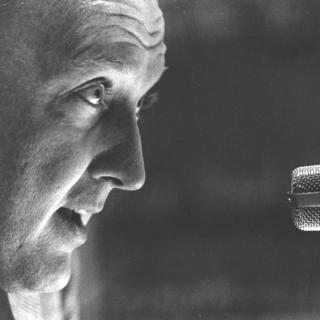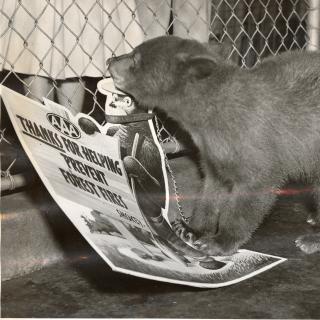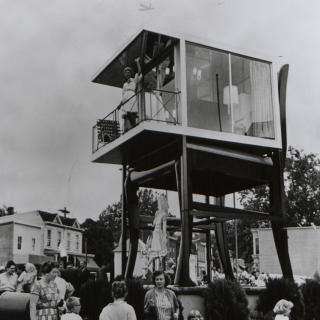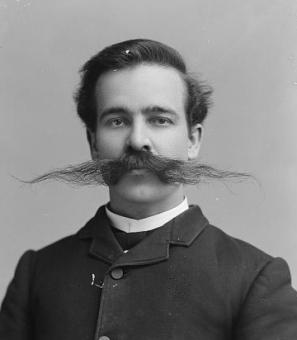Mumbo Sauce: Is It Really 'Quintessential' D.C.?
On Tuesday, November 20, 2018, Washingtonians were heating up their ovens for the Thanksgiving holiday when their mayor came out with a hot take of her own on Facebook:
“Is anybody else annoyed by Mumbo sauce? I wish people would stop suggesting that it is quintessential DC. I’m just saying I was a full grown woman before I had heard of mumbo sauce! So there, I’ve said it.”1
The responses came swiftly. In a matter of hours, the post garnered over 2,300 comments and 1,300 shares. While some defended Bowser, the vast majority spoke out in defense of D.C.’s favorite condiment – some with venom. A sampling:
“I actually thought you were a Washingtonian. No Way a Washingtonian makes it to preschool let alone adulthood without hearing about Mumbo Sauce. I wasn’t here a day before it was mentioned.” – Dee J. Scott
“For you to not only ignore but denounce something that you can’t even deny is associated with being a quintessential part of DC is to turn your back on the very people who put you in the position your [sic] in to have the kind of power you do.” – Aaron Sharpe
“Prudent and brave of you to wait until after the election to share your very controversial opinion about Mumbo sauce.” – Lea Adams
The response was perhaps predictable. By the time Mayor Bowser let her feelings be known, Mumbo Sauce had been a staple in Washington for over 50 years. Its presence in D.C. dated back to at least the 1960s, when it first became popular at Black-owned – and, later, Asian-owned – fried chicken carry-outs.2 Over the decades, it became a go-to food for any occasion, including post-clubbing after hours of listening and dancing to go-go music when go-go clubs were at the height of their popularity.
Origin stories vary so it is difficult to say for sure who introduced Mumbo sauce to the District. Some claim it was Wings ‘N Things at 7th St. and Florida Ave., NW, or Johnny Boy at Southern Ave. in Capitol Heights, Maryland. What is less up for debate is that the sauce became an integral part of Black D.C.’s cultural identity – especially as Washington’s African American population grew dramatically in the 1960s and 1970s. Alongside go-go music and other local tastes, Mumbo sauce came to represent the culture of Black D.C., the homegrown, African American-dominated city that existed outside of national politics.
As Washington Post columnist Theresa Vargas noted in 2011:
“The allure of mumbo sauce (also known as mambo sauce) is not just its flavor, which falls somewhere between barbecue and sweet-and-sour sauce. It’s the sense of identity it carries. It tells of roots in a city where many people just blow through. Among the African Americans who live in the District, more than 60 percent were born here, according to census estimates. Among whites, that figure is less than 15 percent.”3
Arsha Jones, co-founder of the Capital City Mambo Sauce company, expanded on this idea to the AFRO in 2019, “Outsiders tend to have this one perception of what Washington, D.C. is. They think it’s politics, and government and White House and whatever goes in down there, but there is a huge community of people in Washington, D.C. who were born and raised here, and we have slangs, dialects, style, music, dances and food.”4
While D.C. has followed the national trend of gentrification in large urban centers over the past couple of decades, going from what natives once called “Chocolate City” to “Latte City,”5 Mumbo sauce remains a point of local pride to many. (Just ask Mayor Bowser.) DJ Breemz, creator of the traveling house party “Chicken Wings and Mumbo Sauce” may have summed it up best: “Go-go is like the heartbeat of the city and Mumbo sauce is the blood that keeps it all flowing.”6
But can the District really claim Mumbo?
Well... not entirely. It turns out that D.C.’s favorite sauce has Chicago roots. An African American man named Argia B. Collins, Sr. carried a family recipe7 with him when he migrated north from Mississippi as a teenager. In the 1940s, he settled in Chicago and within a few years Argia and his brothers had opened up barbecue joints across the city’s Southside, basting their barbecue with a sauce they called mumbo.8 Argia’s mumbo sauce was so beloved by his customers that after many requests, he started selling bottles of it from his restaurant.9 In 1958, he trademarked the phrase “mumbo sauce.”10
A decade later, Argia’s “product was first sold in November, 1968 to grocery wholesalers and to small grocery outlets.”11 By 1970, he was making mumbo sauce “in three distinctive flavors: mild, or original; tangy, which is spicy and hot and hickory flavored” and in “two different sizes – 18 oz. for consumer use, and the gallon size, sold to institutions such as restaurants, hospitals, and hotels.”12
Once the early 1990s came around, Argia retired and closed his restaurants. Despite a remaining customer base that continued to buy the sauce,13 it seems that Argia’s Mumbo faded from the forefront of the cultural scene in Chicago over time.
But back in D.C., mumbo sauce – or at least our version of it – was as popular as ever. (By and large, the D.C. version of the sauce is thinner than Argia’s sauce.) Mumbo had become a staple in carryouts across the city. In fact, it was so common, so ubiquitous, that by the time Arsha Jones left D.C. for college in Richmond, Virginia, in the 1990s it didn’t initially occur to her that mumbo sauce had any geographic ties to the District, let alone Chicago.
As she reminisced to WAMU’s Dish City podcast in 2019, Richmond had Asian carry-outs that sold both Chinese food and American foods like chicken wings, just like D.C. But when Arsha visited one and ordered chicken wings with mumbo sauce like she always did growing up, the staff at the carry-out was befuddled. “‘We don’t have that. We don’t, what is that?’” It was at that moment that the thought struck her: “I could only get this at home.”14
A similar problem cropped up for Arsha years later after she got married, had a few kids and moved to the suburbs of Maryland. She was close enough to travel to D.C. exclusively to pick up an order of chicken wings and mumbo sauce. But after going through her fourth pregnancy and making trips to satiate her craving for the taste of her childhood, Arsha decided that these mumbo trips to D.C. could not go on. So, she decided to try her hand at making the sauce herself.
“Initially, it was just something for the family to do … Then it got to the point where they were requesting it every week, and I thought ‘If they really like it, I wonder if we could sell it?”15
And in May 2011, “Capital City Mumbo Sauce”16 was born. Just two months after Arsha launched the company with her husband Charles, they were already getting requests for cases of the sauce and attained repeat customers.17 And their customers did not limit their use of Arsha’s sauce to just carry-out fried chicken wings. They were dousing other foods like pork and shrimp in the sauce too.
But soon after Jones’s company launched, it was slammed with a trademark lawsuit. Select Brands, Inc., a Chicago company headed by Argia Collins’ daughter, accused Capitol City Mumbo Sauce Company of violating the 1958 trademark for “mumbo sauce.”18
Unwilling to back down from a fight and ready to defend D.C. 's claim on the sauce that had been part of the city’s culture for so long, Arsha petitioned to have Select Brands’ trademark canceled, arguing that the term “mumbo sauce” had become a generic term in D.C., like “aspirin.”19
As she told the Chicago Tribune:
“Mumbo sauce has been a longtime staple; even when my grandmother was little she remembers eating mumbo sauce, and she’s 81 … It is commonly used and easily found. You can get it at almost every eatery ... Philly has cheesesteaks. Chicago has deep dish pizza. We have mumbo sauce, and it’s our thing.”20
Despite Arsha’s arguments, after a two-year battle, the court dismissed her petition to cancel the trademark, on the grounds that Jones had not provided sufficient evidence to prove that the name “mumbo sauce” was so widely used that it could be considered generic.21 Although Arsha vowed to continue fighting the court decision, her company’s name was eventually changed from “Capital City Mumbo Sauce”22 to its current name, “Capital City Mambo Sauce."
For Select Brands, the legal victory was seen as a rightful affirmation of ownership.
“For us, this is a great opportunity to re-introduce the brand,” said Select Brands’ spokeswoman Lehia Franklin Acox. “It’s unique to have a product from here, but known more elsewhere. This is a matter of cultural pride. This sauce is something Chicago can point to and say, ‘This is another Chicago original.’”23
That may be true but it remains to be seen if Select Brands’ court victory will incite a revival of mumbo sauce’s popularity in Chicago like it once had during Argia Collins’ day. What is clear is that though Select Brands retains the right to use and protect their trademark for themselves, the sauce – whether spelled mumbo or mambo – has become swirled into the cultural tradition and history of Black D.C. That is something that cannot be undone by a court decision. Even though the name “mumbo sauce” itself may be trademarked, you can’t trademark the culture.
Footnotes
- 1
Hiatt, Gabe. “D.C. mayor Muriel Bowser is 'annoyed' by Mumbo Sauce, and people aren't having it.” Eater DC. November 21, 2018. Accessed June 21, 2023.
- 2 Monroe, Lynette. “Mambo Not Mumbo!” Washington Informer. October 25-31, 2018. Accessed June 9, 2023. S4-S5.
- 3
Vargas, Theresa. “Mumbo sauce: The flavor of Washington ‘that isn’t the president and the politics,’” The Washington Post. July 16, 2011. Accessed June 16, 2023.
- 4 Green, Micha. “From mambo sauce to half smokes, D.C. culture shines through its staple foods.” AFRO News. May 23, 2021. Accessed June 9, 2023.
- 5
Carman, Tim. “D.C.’s Mayor Disses Mumbo Sauce, and the Reactions Say a Lot about the Changing Face of Washington.” The Washington Post. November 21, 2018. Accessed June 16, 2023.
- 6
"Why Mumbo Sauce Is the Key to D.C.'s Subculture | Food Grails." First We Feast. June 7, 2017. Video.
- 7 “Collins Brothers Win Mayor's Group Award.” The Chicago Defender. February 2, 1952. Accessed June 1, 2023. 4.
- 8 Ibid.
- 9 Anthony, Toni. “Mumbo Sauce Launched Collins Into Orbit Here.” Chicago Daily Defender. March 2, 1970. Accessed May 25, 2023. 4.
- 10 Gamber, Jennifer. “Marshall, Gerstein & Borun Obtains Dismissal of MUMBO Trademark Cancellation Proceeding.” Business Wire. August 28, 2013. Accessed June 1, 2023.
- 11 Anthony, Toni. “Mumbo Sauce Launched Collins Into Orbit Here.” Chicago Daily Defender. March 2, 1970. Accessed May 25, 2023. 4.
- 12 Ibid.
- 13 Bowean, Lolly. “Savored in D.C., born in Chicago: But court puts a lid on using the name 'Mumbo Sauce' on copies in capital.” Chicago Tribune. September 23, 2013.
- 14
Fort, Patrick, Ruth Tam, and Arsha Jones. “Where Is D.C.’s Mumbo Sauce From?” WAMU,Dish City - S1E4 Mumbo Sauce. October 3, 2019. Accessed May 25, 2023.
- 15 Vargas, Theresa. “The 2 words on everybody's lips.” The Washington Post. July 17, 2011. Accessed June 9, 2023. A1.
- 16 Ibid.
- 17 Ibid.
- 18 Gamber, Jennifer. “Marshall, Gerstein & Borun Obtains Dismissal of MUMBO Trademark Cancellation Proceeding.” Business Wire. August 28, 2013. Accessed June 1, 2023.
- 19 Judkis, Maura. “Mumbo Sauce May Be the Taste of D.C., but in the Eyes of the Law Its Home Is Chicago: Appeal Board Rules That Chicago Company Owns Trademark to Term for Popular Local Condiment.” The Washington Post. September 4, 2013. Accessed May 25, 2023.
- 20 Bowean, Lolly. “Savored in D.C., born in Chicago: But court puts a lid on using the name 'Mumbo Sauce' on copies in capital.” Chicago Tribune. September 23, 2013. Accessed June 1, 2023. 1.
- 21 Ibid.
- 22
Judkis, Maura, “Mumbo sauce may be the taste of D.C., but in the eyes of the law its home is Chicago.” The Washington Post. September 3, 2013. Accessed June 9, 2023.
- 23 Bowean, Lolly. “Savored in D.C., born in Chicago: But court puts a lid on using the name 'Mumbo Sauce' on copies in capital.” Chicago Tribune. September 23, 2013. Accessed June 1, 2023. 1.


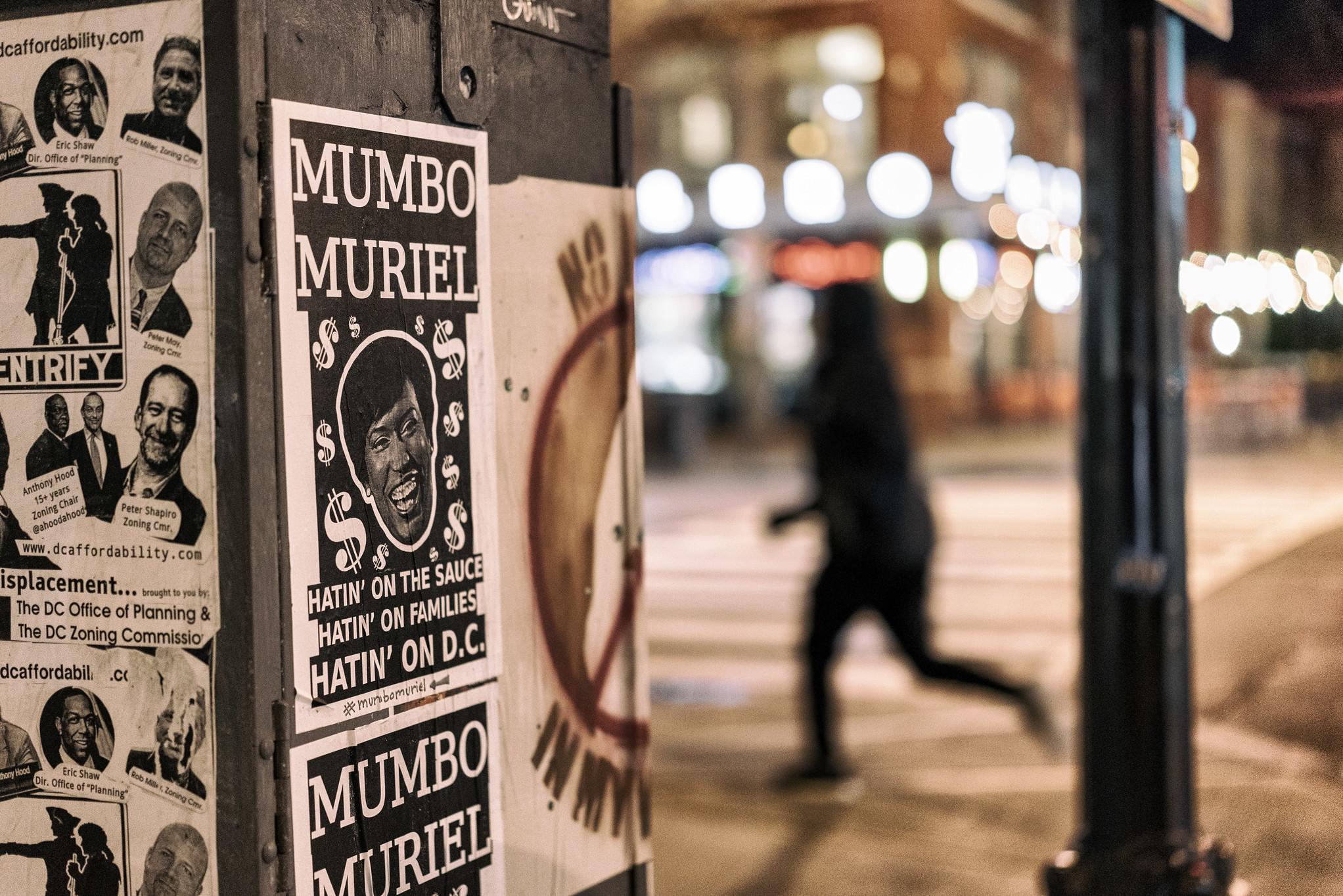
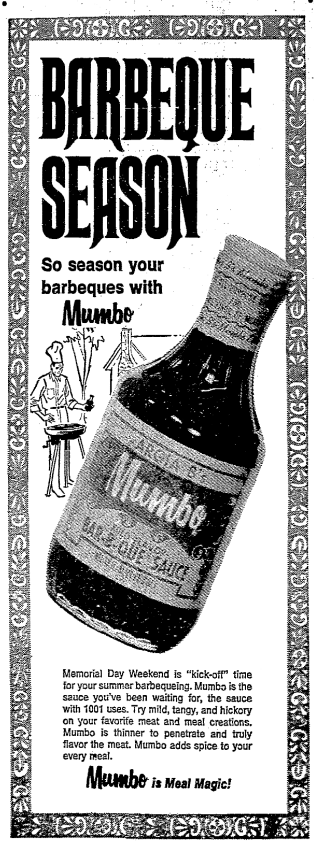

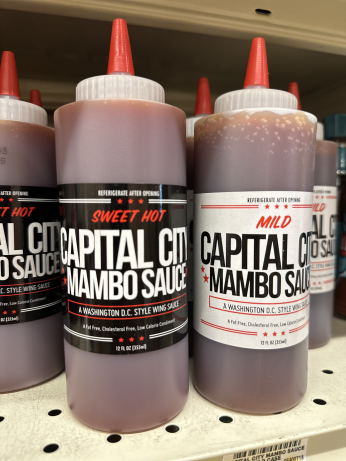
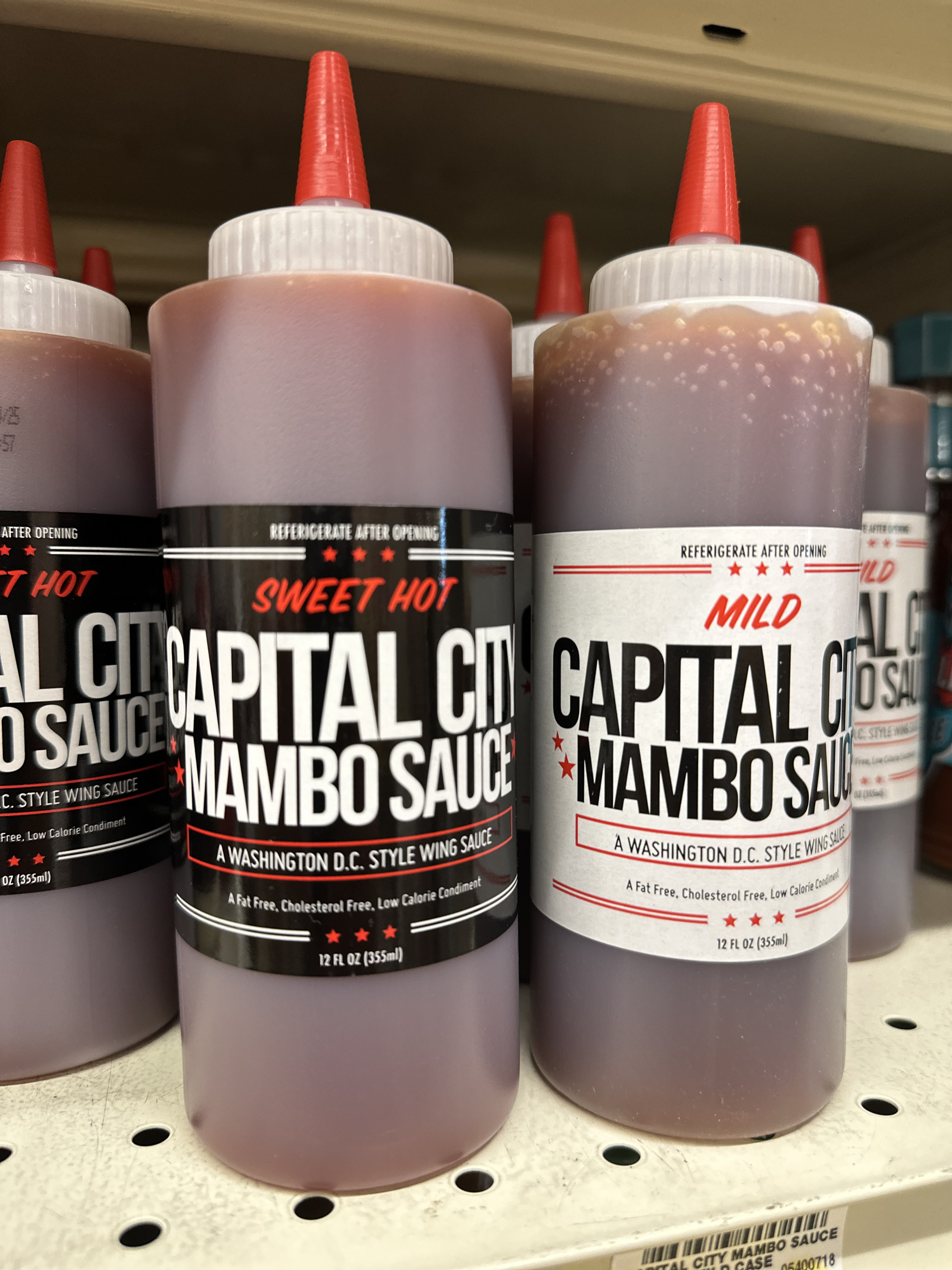
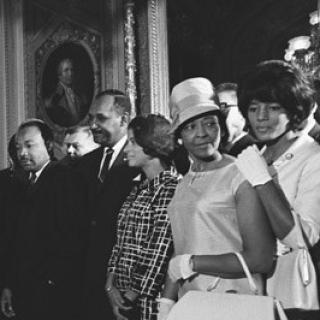

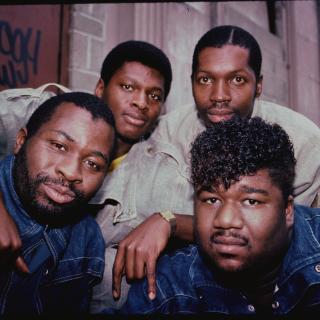
![Sketch of the mythical fuan by Pearson Scott Foresman. [Source: Wikipedia]](/sites/default/files/styles/crop_320x320/public/2023-10/Goatman_Wikipedia_Faun_2_%28PSF%29.png?h=64a074ff&itok=C9Qh-PE1)







